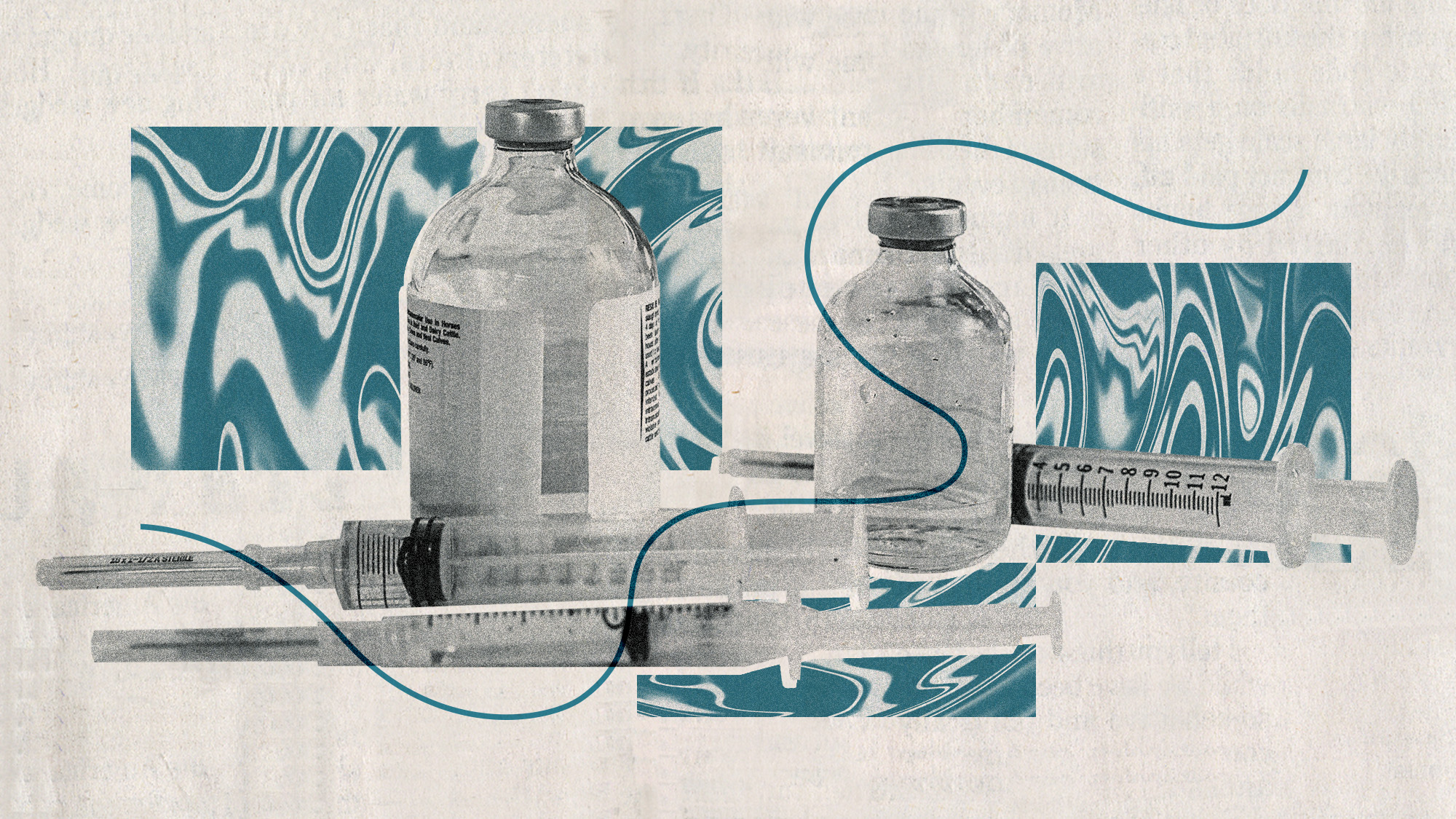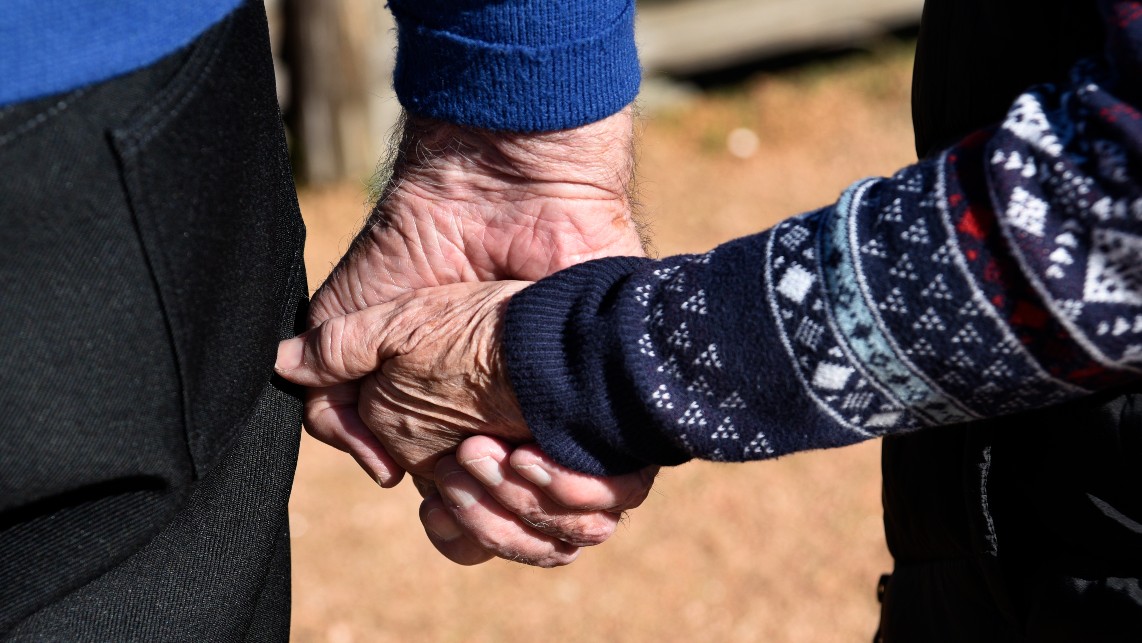Why have UK suicide rates fallen?
Official figures show the largest drop for two decades - but British men still face a ‘suicide crisis’

A free daily email with the biggest news stories of the day – and the best features from TheWeek.com
You are now subscribed
Your newsletter sign-up was successful
Suicide rates in the UK dropped in 2016 by more than in any other year in the past two decades, official figures have revealed.
Data from the Office for National Statistics show the number of suicides registered last year fell by 3.6%, a decrease of 223 deaths from 6,188 in 2015.
While rates for men and women have both fallen, men still account for three-quarters of all cases and Britain is still in the midst of “male suicide crisis”, says Esquire.
The Week
Escape your echo chamber. Get the facts behind the news, plus analysis from multiple perspectives.

Sign up for The Week's Free Newsletters
From our morning news briefing to a weekly Good News Newsletter, get the best of The Week delivered directly to your inbox.
From our morning news briefing to a weekly Good News Newsletter, get the best of The Week delivered directly to your inbox.
Although suicides among men aged 75 and over have more than halved over the past 35 years, males aged 20 to 49 are more likely to die from suicide than any other cause of death, and men aged 40 to 44 have the highest suicide rate of any demographic (15.3 per 100,000).
This overall drop was not distributed evenly across the country. England has seen a significant reduction in recent years but in Scotland the rate has risen. Both Wales and Northern Ireland have recorded a slight fall.
Mental health problems, alcohol and substance abuse, breakdown in relationships, bereavement and loneliness are all major contributors that can lead to depression and suicide, especially over the Christmas period.
Social factors are also linked to suicide rates, with people from the most disadvantaged backgrounds ten times more likely to take their lives than those in more affluent areas.
A free daily email with the biggest news stories of the day – and the best features from TheWeek.com
The Guardian says “prevention work in England has been credited for the drop”, following a coordinated effort by the Government, the NHS, charities, the British Transport Police and others. The Government’s latest progress report found in January that 95% of local authorities in England “have plans in place or in development” to reduce suicide.
“The national suicide prevention strategy for England has included work to reduce the risk of suicide in high-risk groups,” says the ONS. “These include young and middle-aged men, people in the care of mental health services, and those in the criminal justice system.”
Earlier this year, former deputy PM Nick Clegg described suicide as “a massive taboo”, the last in mental health, and Theresa May has made the issue one of her key domestic policy objectives.
But while charities including The Samaritans say that while big steps have been made to raise awareness around depression and mental health, suicide still kills three times more people than road accidents a year.
“Suicide is not inevitable, it’s preventable,” a Samaritans spokeswomen told the BBC. “Politicians, employers, health bodies and educators all have a role in identifying and supporting those most at risk.”
If someone you’re worried about expresses suicidal feelings, you or they should contact a GP or the NHS 111 helpline. You can also call the Samaritans on 116 123 for confidential, 24-hour support, or call Mind, the mental health charity, on 0300 123 3393.
-
 Bad Bunny’s Super Bowl: A win for unity
Bad Bunny’s Super Bowl: A win for unityFeature The global superstar's halftime show was a celebration for everyone to enjoy
-
 Book reviews: ‘Bonfire of the Murdochs’ and ‘The Typewriter and the Guillotine’
Book reviews: ‘Bonfire of the Murdochs’ and ‘The Typewriter and the Guillotine’Feature New insights into the Murdoch family’s turmoil and a renowned journalist’s time in pre-World War II Paris
-
 Witkoff and Kushner tackle Ukraine, Iran in Geneva
Witkoff and Kushner tackle Ukraine, Iran in GenevaSpeed Read Steve Witkoff and Jared Kushner held negotiations aimed at securing a nuclear deal with Iran and an end to Russia’s war in Ukraine
-
 'Poo pills' and the war on superbugs
'Poo pills' and the war on superbugsThe Explainer Antimicrobial resistance is causing millions of deaths. Could a faeces-filled pill change all that?
-
 'Wonder drug': the potential health benefits of creatine
'Wonder drug': the potential health benefits of creatineThe Explainer Popular fitness supplement shows promise in easing symptoms of everything from depression to menopause and could even help prevent Alzheimer's
-
 Mental health: a case of overdiagnosis?
Mental health: a case of overdiagnosis?Talking Point Issues at 'the milder end of the spectrum' may be getting wrongly pathologised
-
 The mental health crisis affecting vets
The mental health crisis affecting vetsUnder The Radar Death of Hampshire vet highlights mental health issues plaguing the industry
-
 What's behind rise in duo euthanasia?
What's behind rise in duo euthanasia?Under The Radar The 'saddest deaths of all' have stirred controversy in the Netherlands
-
 The dangerous search for bodies in the River Thames
The dangerous search for bodies in the River ThamesThe Explainer Retrieving corpses is difficult due to 'massive' tidal range and fast current of deep, dark water
-
 How helpful are mental health apps?
How helpful are mental health apps?Under the radar Market is booming, offering accessibility and affordability, but many apps are unregulated and share sensitive user data
-
 Workplace wellness programmes: a waste of time and money?
Workplace wellness programmes: a waste of time and money?Talking Point Global corporate industry is booming but positive impact on staff well-being is debatable